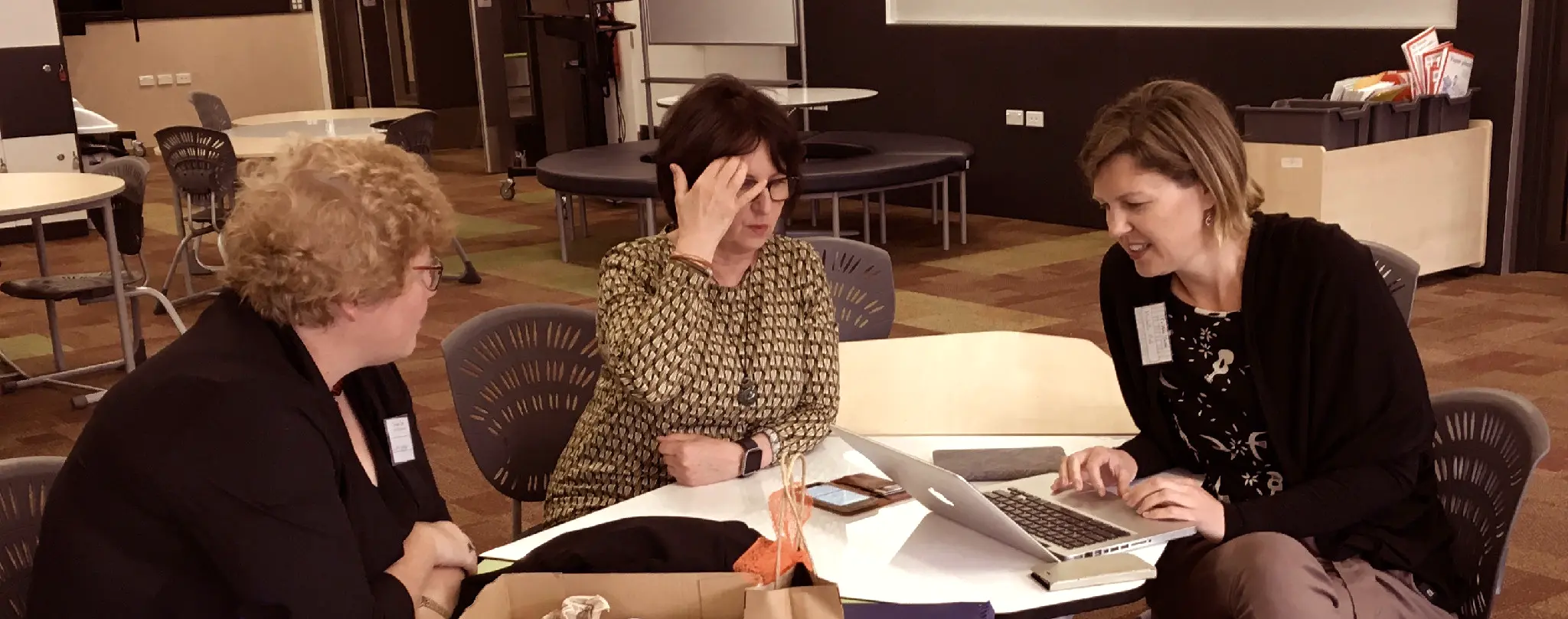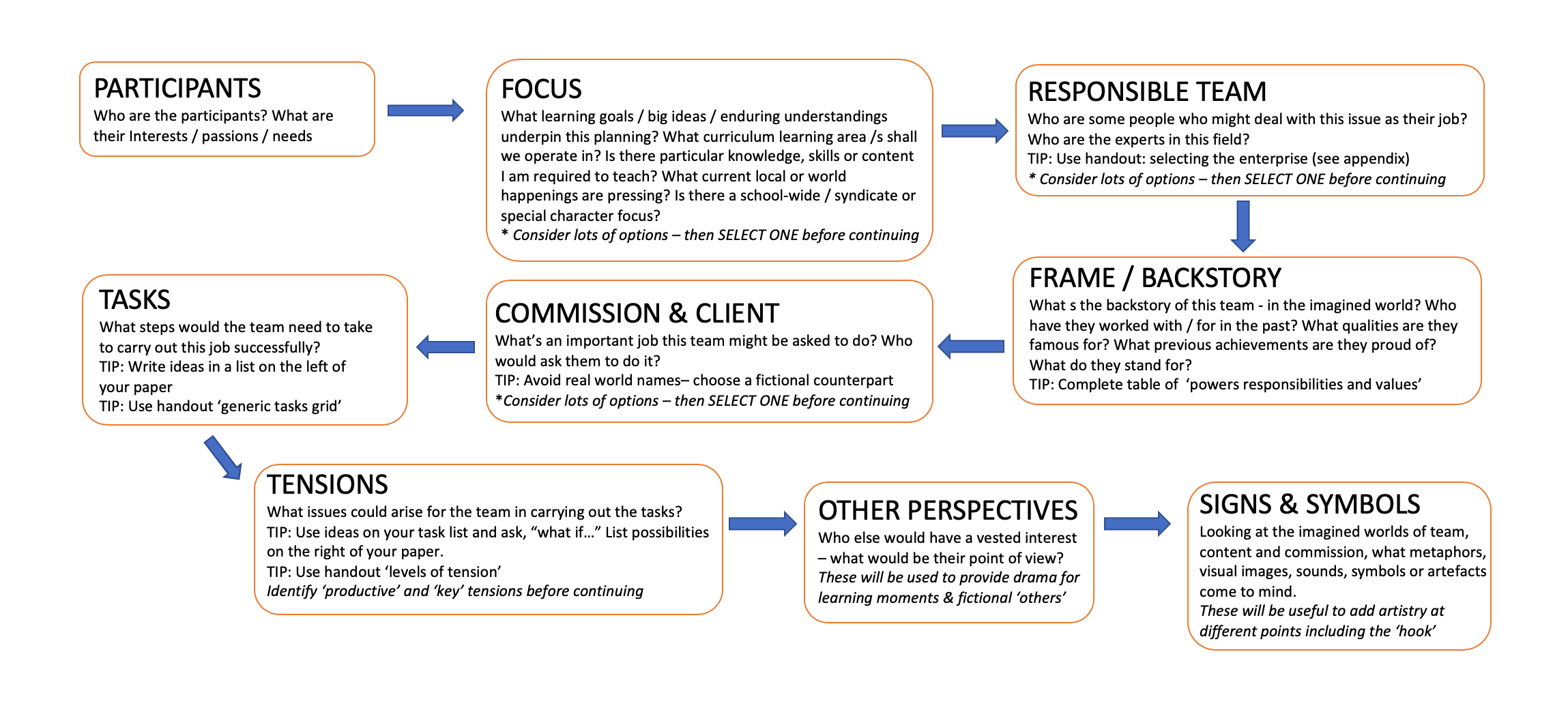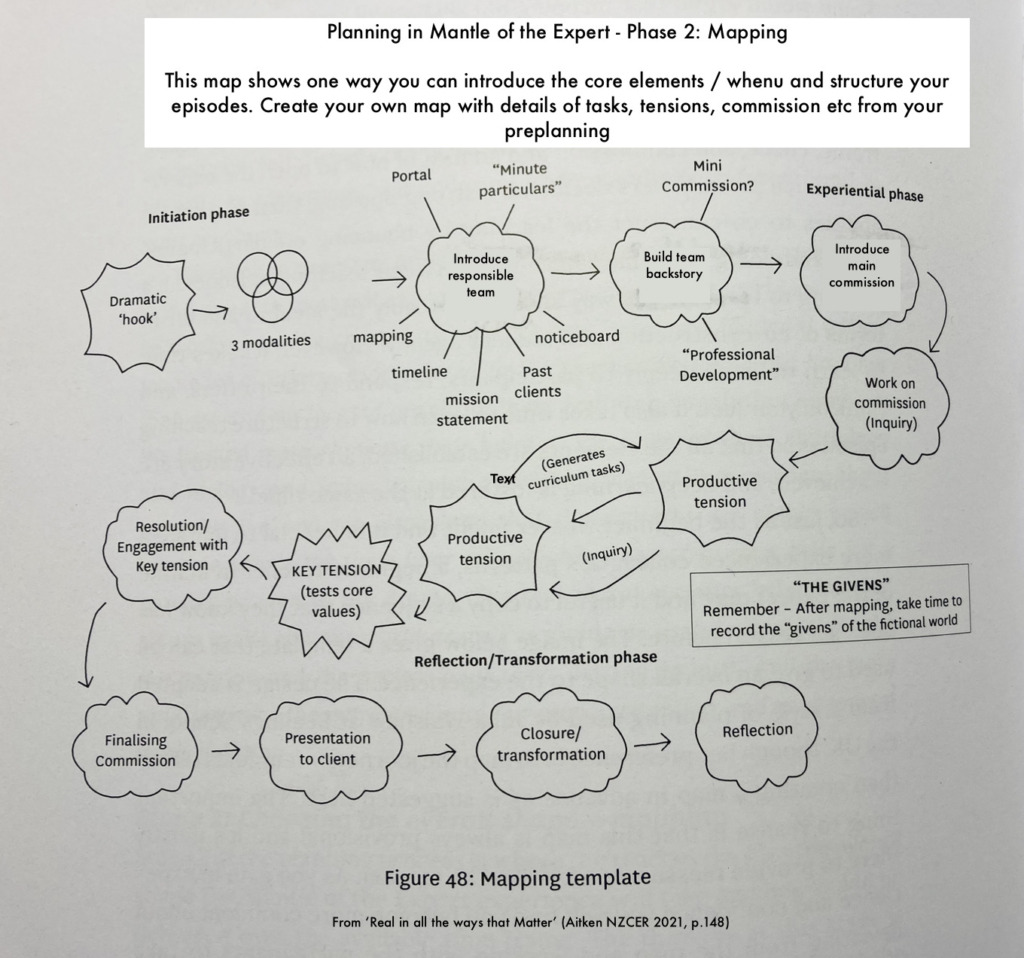Mantle of the Expert Planning
Teaching in Mantle of the Expert draws on the skills, understandings and strategies of process drama, inquiry and relational pedagogy. The planning process is huge fun, but it’s not straightforward. There is no simple template or set of tricks you can pick up and use … It’s more of an ongoing process of discovery, reflection, questioning and crafting of your own practice. The key advice from your fellow teachers is to start small!
When you first start out in Mantle of the Expert teaching experience, you may wish to follow an existing plan rather than create your own. Have a look through this site for ideas, or check out www.mantleoftheexpert.com.
When you are ready to plan your own Mantle of the Expert experience, there are four stages to follow:
Stage 1: Preplanning
This is where you gather your ideas and ensure the core elements of Mantle of the Expert are in place. Use the flow chart below to help you with this. Fill a large sheet of paper with answers to each question on the chart:
A more dynamic version of the preplanning questions with helpful handouts embedded can be found here
Pre-planning tool – The preplanning ‘circle’
Stage 2: Mapping
In this phase, you may choose to create a map, or plan of your whole Mantle. More experienced practitioners might skip this step as they know the Mantle experience will grow and evolve organically as it is co-constructed with students. For beginner Mantle teachers, however, a map can help an overall sense of where the Mantle might go. It can help you think about the arc of a successful drama including where tensions might be introduced. Maps can be handwritten, created on a set of slides, or in another form.
Stage 3: Micro planning
This is where you produce your detailed plans for episodes of teaching, including timeframes, key questions, links to curriculum etc. Here’s a template many teachers find useful for this:
Micro-planning in Mantle of the Expert – 5 column template
As part of micro-planning, you will select drama conventions, plan questions and use tools and strategies for effective implementation. There are many tools you can draw on to make your teaching more effective. Here are just a few
Micro-planning tool – ‘keys’ from Try This
Micro-planning tool – list of Heathcote’s role conventions
Micro-planning tool – tips on Questioning
Micro-planning tool – effective teaching prompt cards see chapter 5 of Real in All the Ways that Matter for full information
Stage 4: Storying
It’s a great idea to create a shared ‘story’ of the Mantle as it unfolds. This can be done using a blog or big book, the classroom walls. Storying helps all participants follow the flow of the unfolding adventures AND allows the teacher to use ‘retrospective’ planning to assess learning and respond to learning opportunities as they arise.
Here’s one example of a teacher storying a Mantle using a blog.



